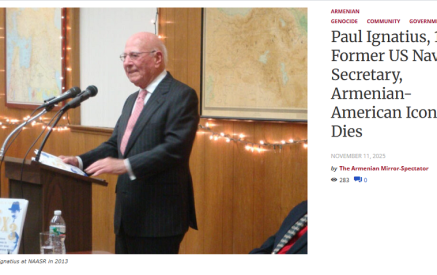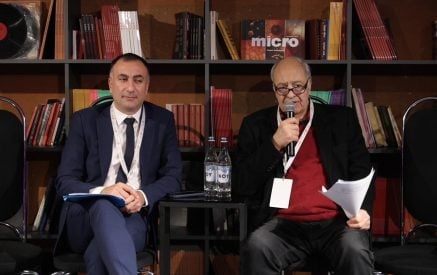by Michael Rubin
On July 26, 1956, Egyptian President Gamal Abdel Nasser nationalized the Suez Canal. For France and the United Kingdom, who were owners of the canal, as well as Israel, which depended upon trans-Suez traffic for trade, it was a casus belli. Paratroopers dropped to secure the Canal, as Israeli forces pushed across the Sinai. President Dwight D. Eisenhower’s decision to side with Egypt over three American allies almost destroyed NATO. The president, though, justified his action in realism. In 1956, there was one Jewish state but ten independent Arab states dedicated to its destruction. Eisenhower believed that by siding with Egypt over Israel, he could sway the broader Arab world to his side in the Cold War. By the Lebanon crisis two years later, he realized he was wrong: Because of its democracy, Western orientation, and culture, Israel was simply a better ally. There followed a de facto alliance that, despite occasional crises during the Reagan, Obama, and Biden administrations, continues to the present day.
From a military standpoint, President Lyndon Johnson institutionalized the informal alliance between the United States and Israel with the Qualitative Military Edge (QME) approach. The concept was simple: Arabs would always hold the edge in both population and amount of military equipment compared to Israel, so the United States would demonstrate its commitment by guaranteeing that Israel would always have more technologically advanced weaponry than its adversaries. Weapons sales involve various US agencies, and debates about capabilities are commonplace. In practice, the State Department considers inputs from the intelligence community to determine the QME. Historically, if weapons were too technologically advanced, the process made them off-limits to Egypt, Saudi Arabia, or other potential Israel adversaries.
Read also
Perhaps Israel’s decades-long QME should be the model for Armenia. Like Israel at the height of Nasser’s Pan-Arabism, Armenia faces an existential threat at the hands of irredentist Pan-Turkic forces. Whereas Hamas and Hezbollah justify Israel’s extinction in religious prerogatives, the Azerbaijani regime both sandblasts thousand-year-old churches and destroys graveyards while sponsoring Islamist mercenaries to torture and behead Christians.
Compared to Turkey with 86 million people and Azerbaijan with another ten million, however, Armenia’s 2.8 million people will never be able to field an infantry comparable to its neighbors.
Armenia traditionally depended upon Russia for protection but no longer can stomach President Vladimir Putin’s hypocrisy. Putin’s cynical citation of the 1991 Alma Ata Declaration to justfy Russian refusal to enforce the Nagorno-Karabakh ceasefire while Russia simultaneously ignored it when Azerbaijan troops occupied portions of Syunik or violated it itself when Russia invaded Ukraine demonstrate how dangerous dependency on Moscow to protect Armenia from external aggression can be.
For decades, a top priority of Armenian groups was Armenian Genocide recognition. President Biden fulfilled that goal, though tying it to undeserved and illegal Section 907 waivers enabled the Azerbaijani regime to fulfill its ambition to expel Nagorno-Karabakh’s indigenous Armenian population. President Ilham Aliyev may whisper sweet nothings to Secretary of State Antony Blinken but in Azerbaijani, Aliyev hints at conquest of Armenia proper.
Whether or not the White House brokers a peace treaty between Armenia and Azerbaijan, it will be essential to ensure Armenia’s defense against aggression. Accordingly, it is time Armenian Americans demand a QME for Armenia.
Traditional US excuses to avoid supporting Armenian defense are no longer valid. Armenia is democratic. It actively seeks to pivot away from Russia as Putin embraces Azerbaijan and Turkey as key nodes in his efforts to evade sanctions. Nor is the Russian base in Gyumri reason not to invest in Armenia’s defense. After all, both the United States and Russia have bases in Syria, and the United States and Chinese bases in Djibouti are just miles apart.
Concern about leakage of American technology to Russia is also overblown. France provides state-of-the-art weaponry, but deploys advisors to monitor it; the Pentagon could do the same. Likewise, India receives both Russian and American weaponry without any allegation of technology leakage.
While the State Department is slow to change policy, their agreement is irrelevant. Every president since Johnson endorsed the Israel QME. Biden could just as easily demand an Armenia QME. Likewise, Congress could enshrine a QME in law, defining a committee to report on US strategy to ensure Armenia has a qualitative edge over Turkey and Azerbaijan for its own defense. At a minimum, that could mean high-end drones and technology to down Turkish drones and jam F-16s and reason to ensure Turkey never again receive weaponry that it would more likely use against Armenians than Russians.
The United States and the world will once again mark Armenian Genocide Remembrance Day on April 24, 2024. Armenians, however, do not need insincere virtue signaling. This April 24, the White House should not only remember the tragedy of the past Genocide but also embrace new strategies to prevent its sequel.
Michael Rubin is director of policy analysis at the Middle East Forum and a senior fellow at the American Enterprise Institute

























































